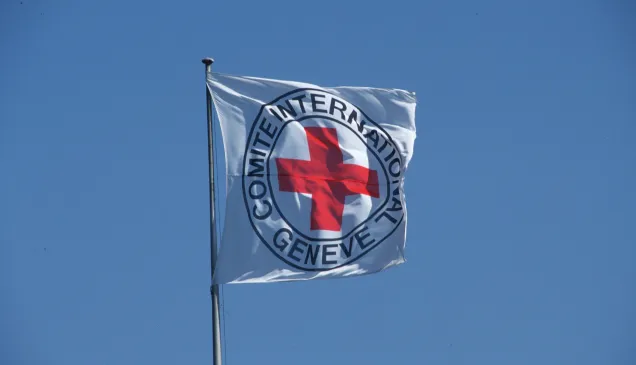United Nations, General Assembly, 72nd session, Sixth Committee, item 85 of the agenda, statement by the ICRC, New York, October 2017.
The International Committee of the Red Cross (ICRC) welcomes the continued interest of the United Nations General Assembly in the principle of universal jurisdiction and takes note of the Secretary-General's most recent report on this issue, to which we contributed.
The principle of universal jurisdiction is one of the key tools for ensuring that serious violations of international humanitarian law (IHL) are prevented and – when they do occur – are punished through criminal sanctions.
The 1949 Geneva Conventions provide the obligation for States Parties to search for suspected perpetrators of grave breaches – which are war crimes – regardless of their nationality and the place of commission of the alleged offence, and either to bring them before their own courts or to hand them over to another State Party for trial. Protocol I of 1977 additional to the Geneva Conventions extends this obligation to the grave breaches defined therein.
Other international instruments place a similar obligation on States Parties to vest some form of universal jurisdiction in their courts over serious violations of the rules contained in those instruments. In addition, State practice and opinio furis have helped to consolidate a customary rule whereby States have the right to extend universal jurisdiction to other serious violations of IHL. These include, in particular, serious violations of Article 3 common to the four Geneva Conventions of 1949 and of Additional Protocol II of 1977, as well as other war crimes, such as those listed in Article 8 of the 1998 Statute of the International Criminal Court.
States have the primary responsibility for investigating allegations and prosecuting alleged perpetrators of serious violations of IHL. When States do not take legal action, however, the exercise of universal jurisdiction by other States can serve as an effective mechanism to ensure accountability and limit impunity.
The ICRC has identified more than 110 States that have established some form of universal jurisdiction over serious violations of IHL in their national legal frameworks. Other States have operationalized the principle of universal jurisdiction through national court decisions and initiatives, such as developing mutual legal assistance mechanisms and networks to share related State practice, and establishing within their prosecutorial authorities or courts specialized units in charge of the investigation and prosecution of alleged war crimes. We observe a steady increase in prosecutions based on universal jurisdiction for war crimes. Such efforts demonstrate that States are using universal jurisdiction to effectively address prevailing impunity gaps and move towards accountability for serious violations of IHL perpetrated beyond their borders, in past or ongoing armed conflict.
The ICRC continues, in its various IHL-related activities throughout the world, to address the issues of preventing and punishing serious IHL violations, by supporting States both in strengthening their national criminal legislation and in establishing universal jurisdiction over serious violations of IHL. We also produce technical documents and practical tools on the application of universal jurisdiction. We recently published our updated commentaries on the First and Second Geneva Conventions of 1949. The commentaries contain valuable material on universal jurisdiction, placed in the context of the Conventions' articles relating to the grave breaches. In particular, they consider in detail the principle of universal jurisdiction contained in the grave breaches regime and the ways in which the States Parties have implemented it in recent decades.
The ICRC recognizes that there may be challenges to the effective exercise of the principle of universal jurisdiction but recalls that, although States may attach conditions to the application of universal jurisdiction to grave breaches or other serious violations of IHL, those conditions must be aimed at increasing the effectiveness and predictability of universal jurisdiction and must not unnecessarily restrict the possibility of bringing suspected offenders to justice.
We will continue to follow, with great interest, the discussion on the principle of universal jurisdiction in the Sixth Committee and in other UN forums. Finally, the ICRC reiterates its readiness to continue engaging with and supporting States' efforts to ensure greater respect for IHL, including in this area.



